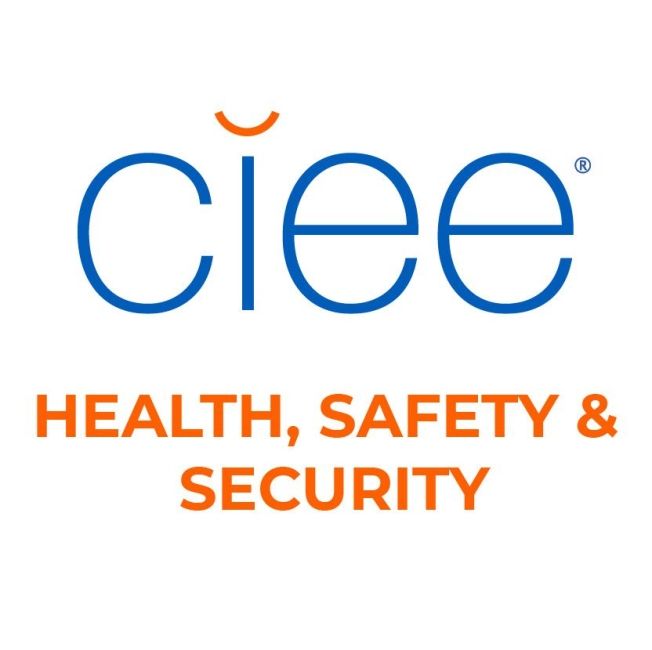The Health, Safety, and Security Takeaway - Vaccination Requirements for Global Scholars
International Travel is obviously not the same as traveling from one U.S. state to another. Traveling from New York to Chicago does not require a visa or proof of vaccines. It’s critically important that your student, as an international traveler, meet all the necessary entry requirements of their destination to avoid any unpleasant surprises. We do not want your student to be denied flight boarding or entry into the country of their destination for lack of proper documentation.
Each country’s entry requirements differ and may depend upon where your student is traveling from.
For example, if your student is traveling from the U.S. to South Africa, they may only need a U.S. passport and no proof of vaccinations for entry into the country. However, if they decide to travel to Argentina (a Yellow Fever high-risk country) en route to South Africa, entry requirements to South Africa or another country may require proof of yellow fever vaccination. In certain instances, the airline may not allow them to board a flight in or out of high-risk disease infection countries without proof of a vaccine. For example, some governments require proof of yellow fever vaccination when arriving from a country with risk of yellow fever, even if their stay in the country of yellow fever risk was only for a brief layover!
The point is, we want students to be mindful when making their travel arrangements. Opting for the cheapest flight generally involves long layovers, delays, cancellations, or re-routing. They may end up spending more time in a location than anticipated. If that location is an area of high-risk infectious disease, they may suddenly require a vaccine to enter their original destination. If they do not have the proper proof of vaccination and are denied entry, they will incur additional expenses associated with hotel stays and rearranging their flight routes. In addition, they may miss some of their classes!
To avoid travel issues, we want students to keep in mind:
- If they are traveling from a country other than the U.S., such as from one Global Institute to another or on a week-end getaway or prior to commencing their program, they should ALWAYS check to see if their destination requires vaccines from the country from which they will be departing prior to entry. For example, they may not have needed a vaccine traveling from country A to country B, however when they go on a trip from country B to country C (risk of infectious disease), they will need a vaccine to re-enter country B.
- The vaccine requirements apply regardless of the length of their stay. A vaccine requirement can arise after a few hours of layover or a weekend in a high-risk country.
- Beware that some countries have high-risk regions or areas which students may not plan to visit, however when they travel to their next destination, the next destination will not care that they were not in a high-risk area and may still require proof of vaccine.
- Vaccine requirements differ from one country to another and change constantly, often without notice – students should make sure to check requirements frequently and before traveling to ensure that all their vaccine documentation is up to date.
- Some vaccines take time to take effect and students will not be allowed to enter a country prior to the waiting period. Some vaccines may require a 10 day or longer waiting period.
- Some vaccines may not be readily available from a local healthcare provider. They have to be ordered and students will have to wait days or weeks, or travel to a clinic in a remote area.
- Because epidemics can break out at any time, students should be on alert for travel warnings that may impact entry requirements.
It is the students’ responsibility to ensure that they meet all entry requirements for their study abroad program!
Students are responsible for all their travel, such as travel prior to their study program, during their study term, and breaks. The best way to avoid issues is for them to plan well in advance and be extraordinarily vigilant and attentive to any changes in entry requirements. No one wants to be denied entry to a country upon arrival.
CIEE requires that students consult with a travel medicine physician and the U.S. State Department website for international travelers. The U.S. State Department maintains an excellent website for travelers departing from the U.S. to every country around the globe. However, the U.S. State Department does not know that a student may be departing from a non-U.S. destination (for example from Brazil or Argentina to get to their next location in South Africa).
In addition, we encourage students to visit travel health websites such as the World Health Organization, the Center for Disease Control for vaccination requirements and to contact the U.S. Embassy of their destination country to confirm requirements based on their travel plans. Official travel health notices change constantly. CIEE does not maintain a current list of travel health requirements and is not qualified to give medical advice to students. Therefore, CIEE staff may only provide students with limited guidance. If students have any questions prior to their program start date, they should reach out to their study abroad advisor.
Cheers and happy traveling!
____
This is the latest installment of our new outreach feature – The Health, Safety, and Security Takeaway. On a regular basis, CIEE's Health, Safety, and Security team will share a tip or idea to help university teams prepare students for study abroad and manage any health and safety problems that may arise. See November's HSS Takeaway here.

